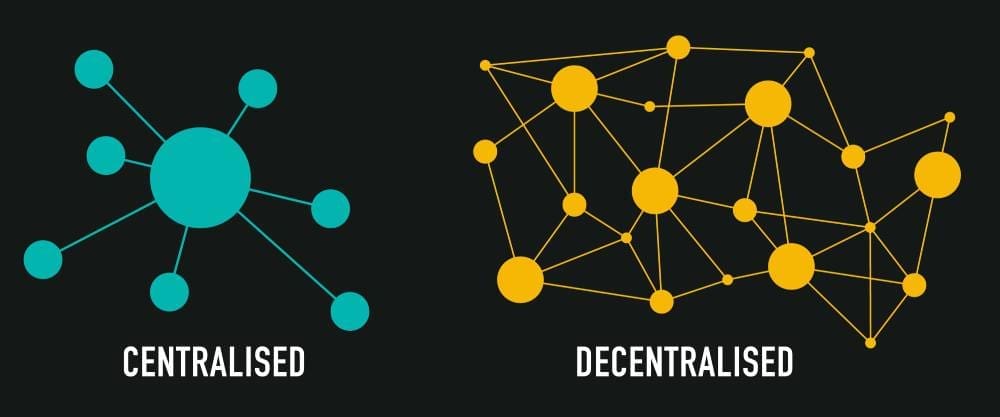Web3 Legal Marketing
Web3 is the newest era of the internet. Web3 is by no means a polished article at this date, and it’s impossible to say really when, or even if it will be. What it is, however, is a growing movement in the digital world, so identifying how Web3 might change the way you use the internet, and getting ahead of the curve, is important. We’re going to take a look at Web3 legal marketing, what it means, how things might change, and what benefits there might be for your law firm!
Before we do any of that though, the first thing we need to do before we look at Web3 from a digital marketing perspective, is understand exactly what it is, and how it emerged in the first place. So let’s do that.
How Does Web3 Differ? The Basics In Plain English
It’s time for a quick digital history refresher. To try and understand what Web3 is, we really need to go back in time and figure out what exactly Web1 and Web2 are, because you are correct, it is the 3rd iteration of the ‘the web’.
Web1.0 – Read Only – (1989-2004)
Put simply, Web1 is the early days of the accessible internet. This is when the internet was launched to the public, primarily as a very large encyclopaedia. There was no interactivity, every page was static, and the internet was purely used as a broadcasting platform for businesses to share information to those that were searching for it. Web1 was focused on sharing information with users who were searching for it. Essentially a ginormous catalogue.
Web2.0 – Read & Write – (2004-Present)
As the internet evolved, the birth of Web2 came, which largely revolves around user generated content, and thus involves participation, contribution, and interactivity. People began building communities and social media evolved, and the internet became a place for engagement, communication, and dialogue. Instead of everything being designed by business entities to share information, everything was flipped to be designed with the end user’s experience at heart. It’s all about how you can share, and how you can interact. It’s much more personalised, and for that reason, Web2 is the most popular medium for most internet users today. It’s great, it’s convenient, but it’s not overly secure.
What do I mean by ‘secure’ in this context? Well, the evolution of Web2, and its focus on user generated content hubs and user experience, means that big enterprises (like Facebook, Google, or Amazon) can take control of huge volumes of data. All this data has to be stored, and is therefore stored in a centralised location, which is at all times accessible to these large enterprises. However, this centralised data storage creates a vulnerability within the Web2 ecosystem. Malicious agents can use and abuse that data at their own will if they have access. When I say malicious agents here, I don’t mean a hardened gang of cyber-criminals, it can simply mean anyone with the means.
You gave someone control or ownership of that data after all, and now they can use it to do, say, sell, pitch, or show you whatever they want. It’s their ecosystem after all. So without trying to sound like a conspiracy nutter, and using the big ‘they’ all the time, the summary is that everything about Web2 is designed around centralisation of data.
Web3.0 – Read, Write, Own
Now onto Web3 (or Web3.0). Web3 exists due to a number of challenges that have become more and more evident with the evolution of Web2. Primarily though, Web3 is designed around the principle of decentralisation, largely to ensure user safeguarding and data privacy.

No 1 entity, or enterprise, has control. It is built around the principle that everyone can read, write, and most importantly, own their data and identity. It means that whilst previously websites would track your data, and store it as their own, you now have the ability to grant permission to certain sites/businesses at your own discretion. You own your identity in a private wallet (like a virtual safe), which you have unlimited keys for. You can hand these keys out to whomever you choose, but you can also take back those keys whenever you want to. You’re essentially only handing out temporary copies of your identity, as this data cannot be stolen, or copied.
It is designed to be permissionless, fully inclusive to any user, has its own native payment system (in anonymous cryptocurrency), and never relies on trusted third-parties to operate. What this means is this: Web3 doesn’t rely on any big entities/enterprises. Your entire identity on Web3, is controlled by you, and is completely anonymous. It’s infinitely customisable, and infinitely secure. That is the fundamental objective and the main difference with Web3.
Web3 Legal Marketing – What Does All This Mean In A Legal Marketing Context
Onto the crux of the blog then. How exactly does Web3 impact legal marketing? The truth of the matter is that Web3 is not ready to be fully integrated for the average internet user, let alone as part of a digital marketing strategy. Many of our current digital strategies revolve around various channels, like PPC, and email marketing, but these channels don’t really exist in the same way as part of Web3. These channels need data and profiles to operate to the effectiveness that they do.
Realistically Web3 can’t operate the same way, and there will be revolutionary changes to the way digital marketing works, but it won’t happen immediately. We’ve picked out a few things for you to be aware of, such that when the time does come when Web3 becomes fully adopted, you’re ahead of the game.
5 Ways To Prepare For Web3 Legal Marketing
Enhanced Emphasis On Brand Loyalty & Community
The main value that underpins Web3 is privacy. This privacy gives far more momentum to the consumer to choose what they value in a brand, and act on their beliefs, rather than what the mainstream does. Brand loyalty will become so, so important, and your brand positioning will become increasingly more and more focused on what you stand for, and what your beliefs are, rather than what your product or service line is. First impressions count!

As Web2 and Web3 collide, and information and experiences are shared amongst users, there becomes a far greater number of touch points between consumers/clients and businesses. The need for unique, personalised, and relatable content, and brands that individuals can align with becomes even more important!
The Blur Between AI, AR, VR & Real World Interactions
AR (augmented reality) & VR (virtual reality) technology is already a booming industry. It’s become one of the top tech trends in the last few years, and has seen many big brands jump on board. Web3 has a huge focus on integrating AR & VR into its ecosystem. However, there is an even greater focus on AI (Artificial Intelligence) and machine learning.
With smarter data, comes smarter experiences, and with smarter experiences, there is an enhanced ability to create compelling customised content. Web3 will provide a hybrid space where brands can connect in a much more personalised and customised way with their audience.
The Growing Importance Of Content
Yep. Content is still king in Web3. Content today, especially on social media, has rules and regulations that it has to follow. With Web3 there comes a growing autonomy to create much more freely. There will be even more responsibility placed on user generated content, and even more emphasis placed on aligning yourself with the correct influencers. That relationship between brand and audience is so important, and content will play a key role in maintaining and developing it.
Move Away From Third-Party Cookies & Data
Data is moving in a way that simply does not align with third party tracking and cookies. If you have a huge emphasis on this as part of your strategy now, you need to ensure you have something else in place for when Web3 stops this practice. You will need permission and consent before you’re able to do anything in Web3 in regards to users data. This really drives the emphasis towards being more creative with your content.
Be Open To Metaverse Marketing Strategies
While the metaverse is not ready for most users yet, and probably least of all the legal sector, there is still an interest to be ahead of the trend. There are many options to advertising with the metaverse, from creating virtual venues and chat rooms, having digital collections, or creating immersive VR experiences. It might not seem overly relevant now, but who’s to say it won’t be soon.
Final Thoughts
Web3 legal marketing is a bit of an unknown at this stage. It is in its infancy, and the average person doesn’t know too much about it. However, with the way technology evolves, and the ever growing importance of data and security, there’s no reason why Web3 won’t be implemented on a much larger scale sooner rather than later. No one likes to be late to the party, and Web3 is the next big party. Make sure that when those RSVPs go out inviting you to the Web3 revolution, you already have your foot in the door.
If you’d like to find out more about digital marketing for law firms, please contact us here for a free consultation.






